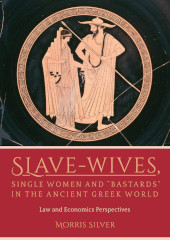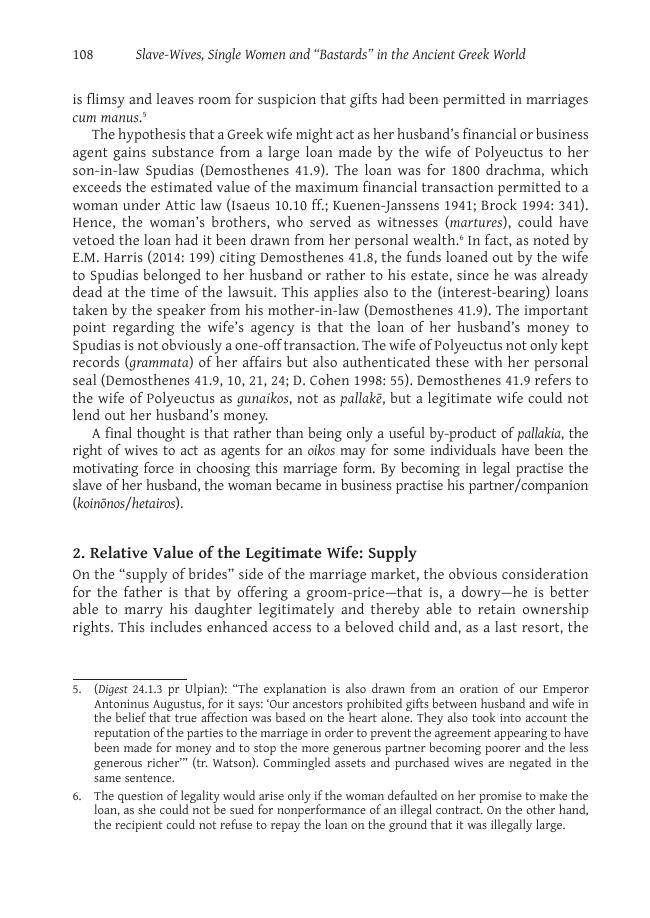Slave-Wives, Single Women and "Bastards" in the Ancient Greek World : Law and Economics Perspectives
224 p.
Greek scholars have produced a vast body of evidence bearing on nuptial practices that has yet to be mined by a professional economist. By standing on their shoulders, the author proposes and tests radically new interpretations of three important status groups in Greek history: the pallakand#275;, the nothos, and the hetaira.It is argued that legitimate marriage andndash; marriage by loan of the bride to the groom andndash; was not the only form of legal marriage in classical Athens and the ancient Greek world generally. Pallakia andndash; marriage by sale of the bride to the groom andndash; was also legally recognized. The pallakand#275;-wifeship transaction is a sale into slavery with a restrictive covenant mandating the employment of the sold woman as a wife. In this highly original and challenging new book, economist Morris Silver proposes and tests the hypothesis that the likelihood of bride sale rises with increases in the distance between the ancestral residence of the groom and the fatherandrsquo;s ho
usehold. Nothoi, the bastard children of pallakai, lacked the legal right to inherit from their fathers but were routinely eligible for Athenian citizenship. It is argued that the basic social meaning of hetaira (companion) is not andlsquo;prostituteandrsquo; or andrsquo;courtesan,andrsquo; but andlsquo;single womanandrsquo; andndash; a woman legally recognized as being under her own authority (kuria). The defensive adaptation of single women is reflected in Greek myth and social practice by their grouping into packs, most famously the Daniads and Amazons. [Publisher's text].
Special access authorizations may apply; please contact us for further information.
-
Information
ISBN: 9781785708664
DISCIPLINES



